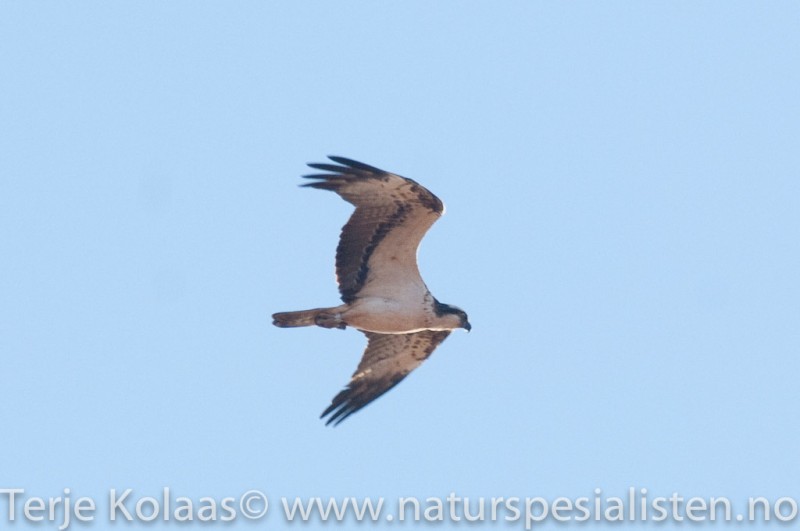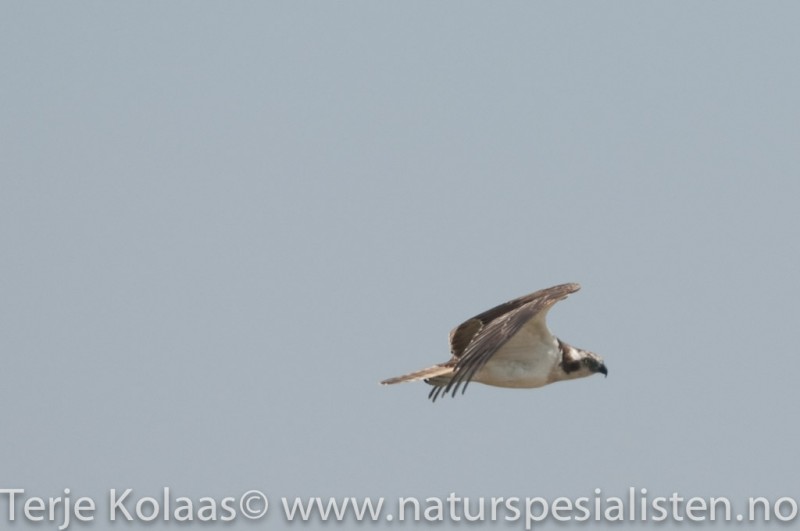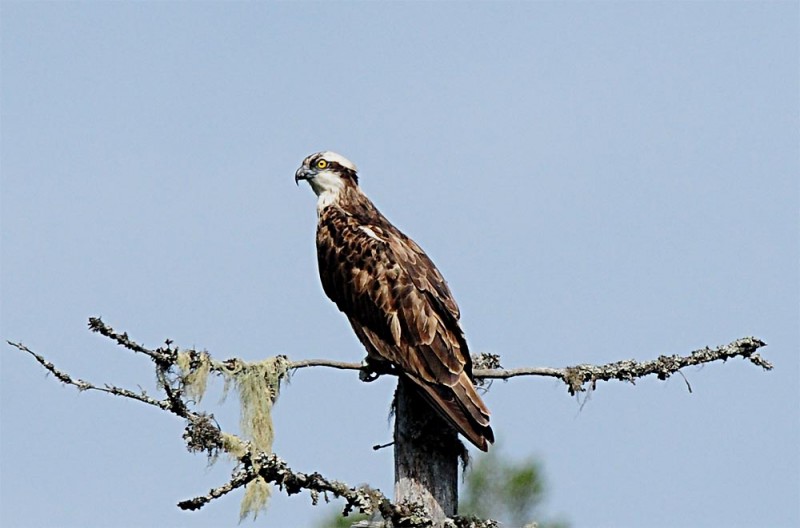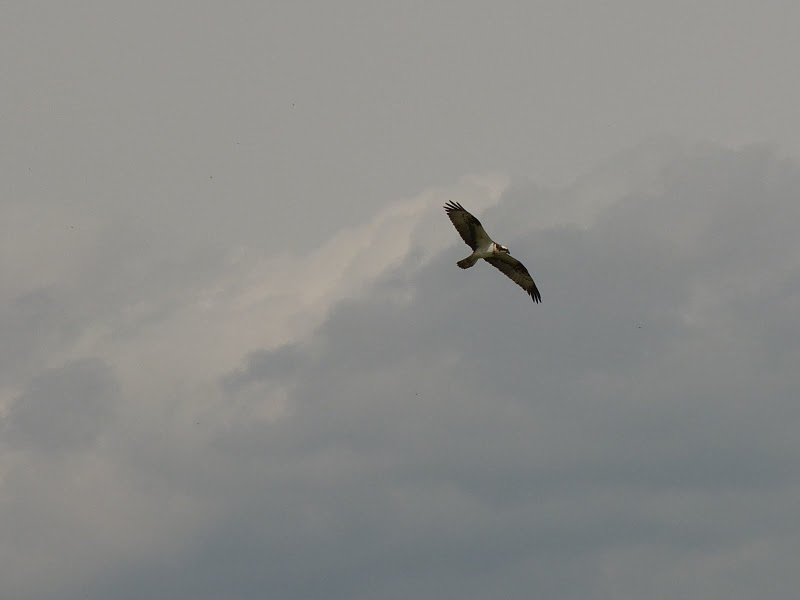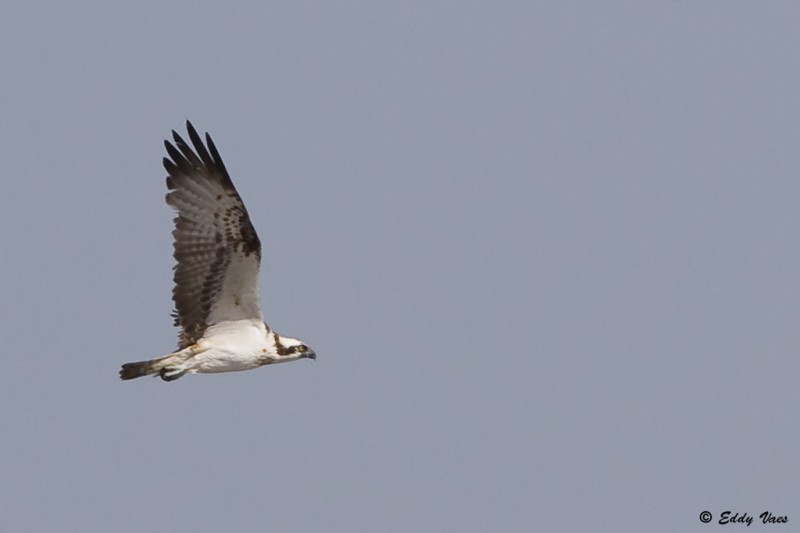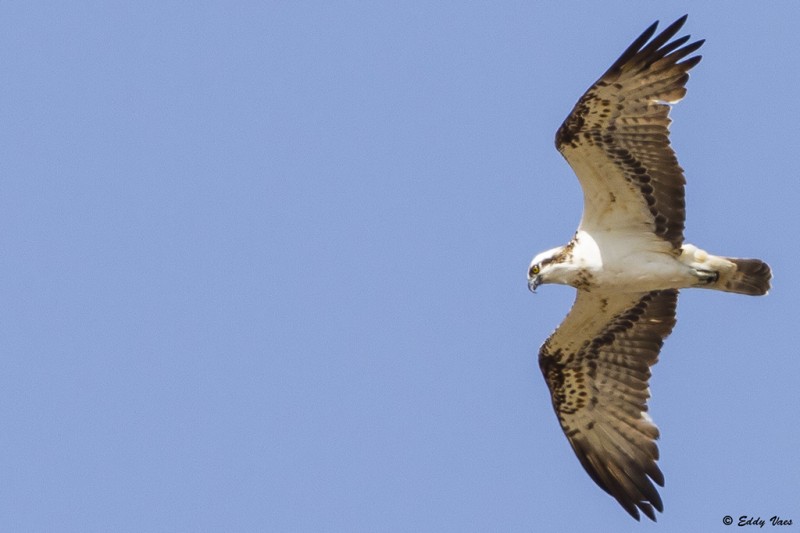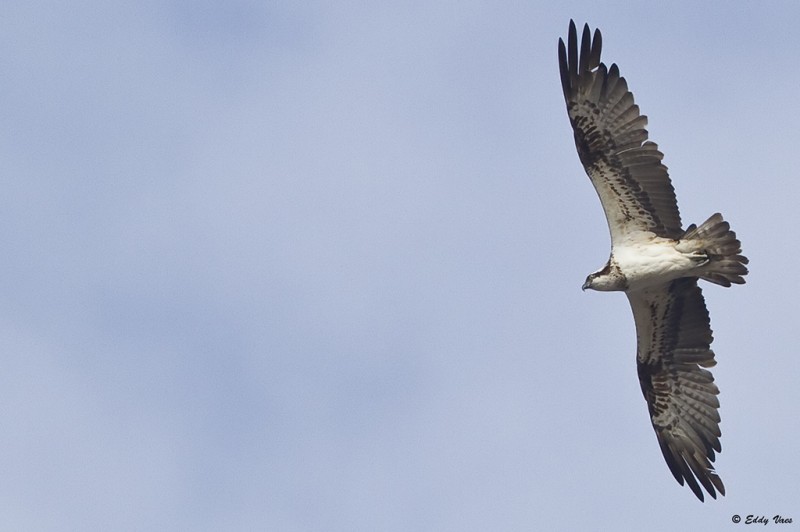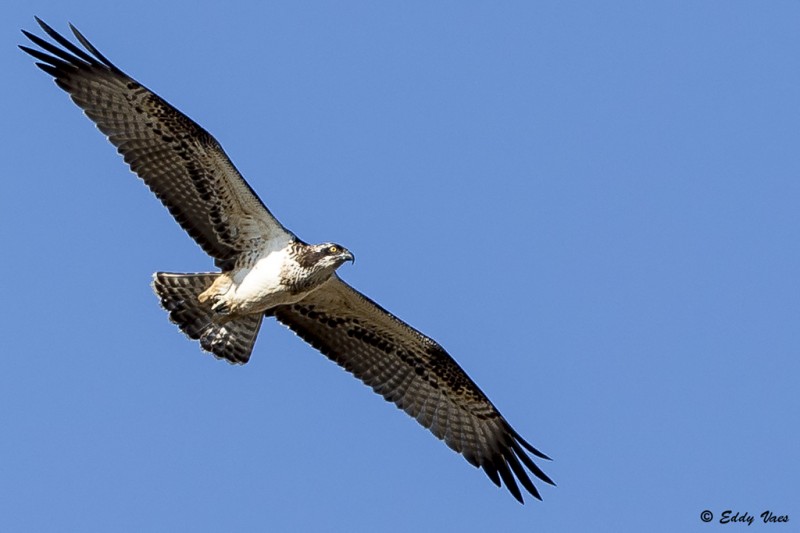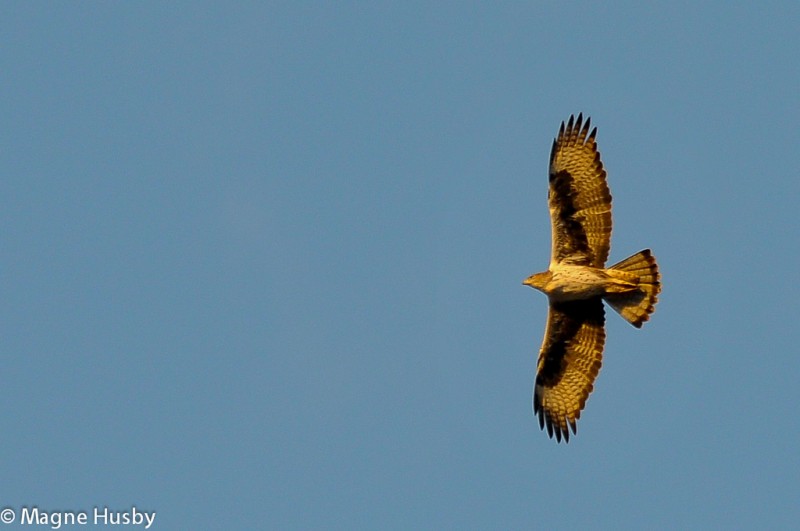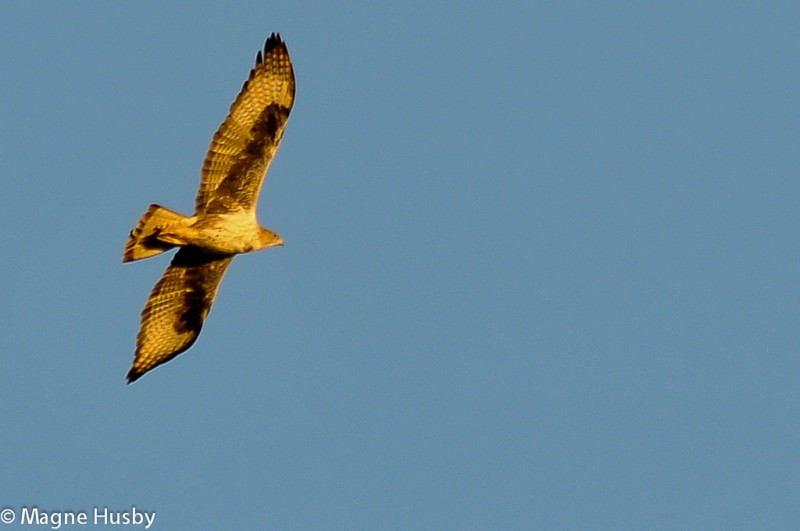Osprey (Pandion haliaetus)
Bonelli's Eagle (Aquila fasciata)
Long, slender wings, dark brown upperparts and white underparts. Quite short tail. Distinct black carpal patches, finely barred flight-feathers and tail, and conspicuous broad dark eye-stripe. Soars with angled/bowed wings. Glides with wings bent at carpal joint.
Sound:Calls with sequences of short, soft and clear whistling notes. Often in series with rising pitch, then ending with a few lower pitched notes.
Contact call:
Distribution:
Wikipedia: map (se also Xeno-canto below)
Ecology:Birdlife ecology
Links:
Observation.org Latest observations
Image search Flickr NB! May give other species
CCMedium sized eagle with long wings and tail. Pale base of outermost primaries in all plumages (lacking in Booted Eagle). Adults easily identified by dark greater coverts forming mid wing band on underwing, in combination with pale body and pale lesser coverts (variable). Tail clear cut (but not as pointed corners as in Booted Eagle) with broad terminal band. Back with diagnostic white patch (variable). Immature told from dark and medium morph of Booted Eagle by pale base of outer primaries, narrowly and evenly barred tail (bands reaching outer edge). The species show less fingered wings than many congeners, and long tail combined with small head may recall Honey Buzzard. Characteristic gliding profile with projected carpal joints and straight trailing edge of wing. Slight S-shape to trailing edge of wing when soaring. Flight agile and falcon-like.
Sound:Not very vocal, but may call at breeding ground. Commonest call a sharp, gull-like "kleeee", beginning with marked register-break followed by drawn-out note with fairly stable pitch, unlike most congeners.
Call:
Distribution:
Xeno-canto: map
Ecology:Birdlife ecology
Links:
Observation.org Latest observations
Image search Flickr NB! May give other species
CCCC-photo:Jorrit Vlot, Licence,Link.
CC-photo:Paul Cools, Licence,Link.
CC-photo:ruwan aluvihare, Licence,Link.

 English
English Albanian
Albanian
 Armenian
Armenian
 Bulgarian
Bulgarian
 Catalan
Catalan
 Croatian
Croatian
 Czech
Czech
 Danish
Danish
 Dutch
Dutch
 Finnish
Finnish
 French
French
 Georgian
Georgian
 German
German
 Greek
Greek
 Hungarian
Hungarian
 Italian
Italian
 Latvian
Latvian
 Lithuanian
Lithuanian
 Macedonian
Macedonian
 Norwegian
Norwegian
 Polish
Polish
 Portuguese
Portuguese
 Romanian
Romanian
 Russian
Russian
 Sami : Lule sami
Sami : Lule sami
 Sami : North sami
Sami : North sami
 Sami : South sami
Sami : South sami
 Scientific names
Scientific names
 Serbian
Serbian
 Spanish
Spanish
 Swedish
Swedish
 Ukrainian
Ukrainian

